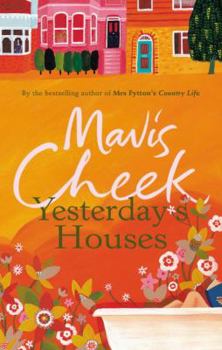Yesterday's Houses
No Synopsis Available.
Format:Paperback
Language:English
ISBN:0571224245
ISBN13:9780571224241
Release Date:January 2007
Publisher:Faber & Faber
Length:371 Pages
Weight:0.70 lbs.
Customer Reviews
1 rating
Rising above
Published by Thriftbooks.com User , 17 years ago
In the opening chapter we find Marianne, a seventeen year old poorly educated shop assistant in the cosmetics department of a store, being casually invited by a total stranger to a party in a middle class house. There she meets Charles. We are told nothing of their courtship - simply, on page 13, that they are married. Charles comes from a bourgeois family. He has a charming and sensible mother, who will be tower of strength to Marianne. But Charles himself is a thoroughly unpleasant character. As a parlour socialist, he claims to dislike everything bourgeois. The first home of Charles and Marianne is a horrid basement, but he is saving up to be able to afford a mortgage for something better. Unwilling to spend money on professionals, he is an incompetent DIY fanatic and in their second and third house Marianne has to live uncomfortably for months on end while he rips up floorboards and makes a mess in every room at the same time (including the bathroom, when a comfortable and cheerful bathroom is something Marianne longs for with the passion of someone whose own parental home had a horrid one.) He is completely self-centred, randy, and imposing kinky couplings on his wife. Marianne doesn't see the point of them, but for some time (touchingly almost too good to be true) she goes along with all his ways: she knows he is odd (perhaps all men are), but she keeps her thoughts to herself, for she likes being married; and she thinks she has a lot to learn, socially and educationally. Her mother-in-law introduces her to Greek mythology; and whenever Marianne hears a word or a name she does not know, she looks it up - and so she gradually educates herself and comes to respond to great literature. It takes Marianne about seven years (about a third of the way through the book) to admit to herself how sterile (in more senses than one) is her marriage and how bleak her life. And then she begins to stand up for herself and for a while to become independent in ways that are exhilarating to read about. But just as we have come to cheer for her, she finds herself on another roller-coaster of fulfilment and despair, despair and fulfilment - of sorts. And brilliantly though it is done, I for one began to lose some of my sympathy (though not my liking) for Marianne. Her choice of men and of houses is always, to say the least, unwise; and as she moves from one grotty house to another, surely she could have done at least something during so many years to do them up a bit and get that decent bath-tub she was longing for: even her coarse proletarian neighbours manage that. Maybe in her last house - the eighth - she will get round to it. She'd deserve it - but I wouldn't bet on it. So I had to suspend my disbelief from time to time, (and, just in case there are autobiographical elements in the book, I hope Mavis Cheek will forgive me for that remark), but it was an enjoyable, witty and sardonic read.






